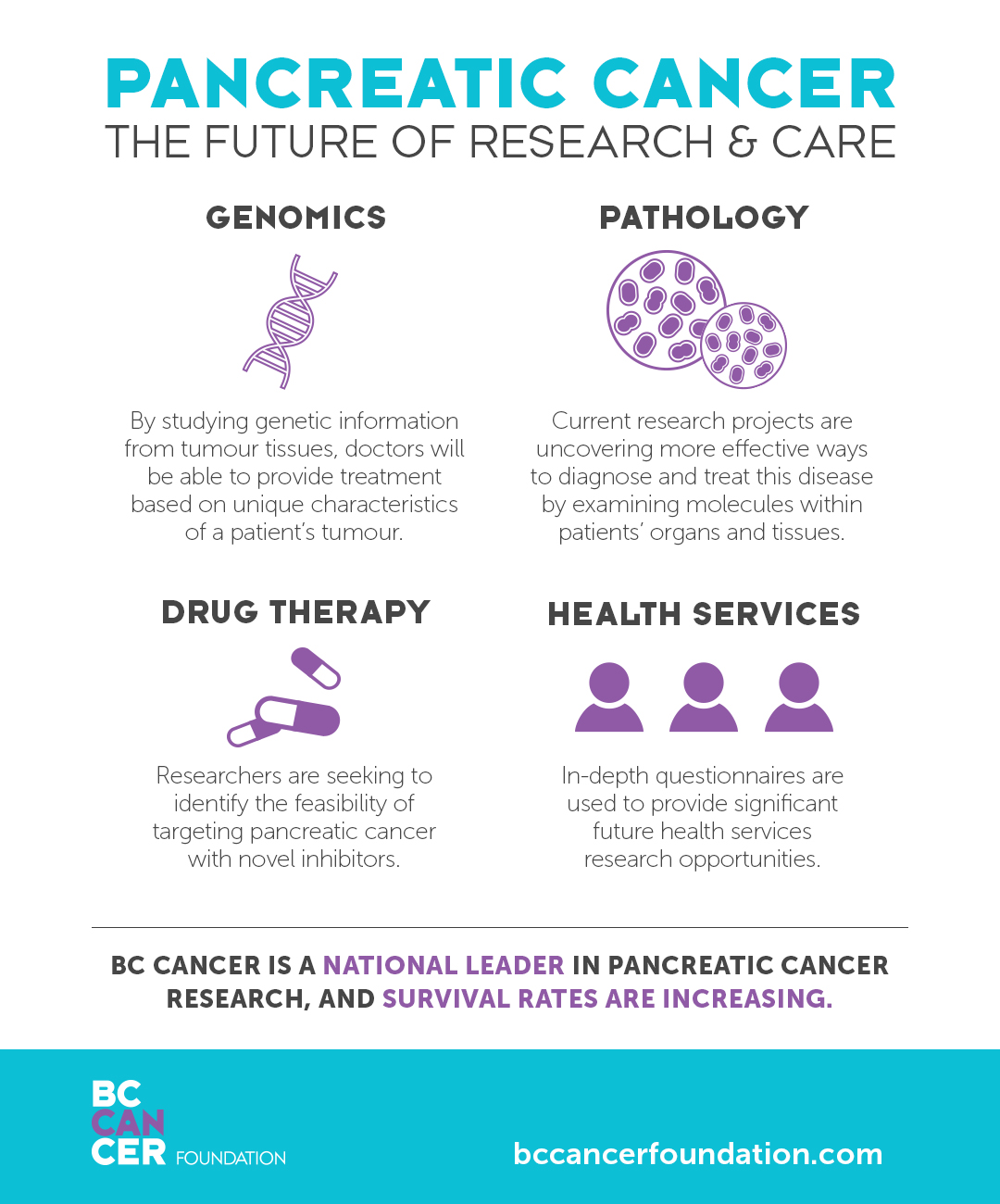Promising treatments in development for pancreatic cancer
August 16, 2018
Found in Pancreatic Cancer
Over the past 18 months, tremendous progress has taken place in pancreatic cancer research, particularly in the clinic.

During this time, we have enrolled patients in a clinical trial which seeks to compare a standard chemotherapy with the same standard chemotherapy along with immunotherapy drugs. Perhaps activating the body’s immune system to detect cancer and mount a response can help slow the growth or cause cancer cells to die.
We want to learn if the addition of these treatments will help people live longer. We are eager to see the results, and where the findings from this study will take the research next.
In another study, we are looking into the genetic make-up and characteristics of the tumour. By following patients throughout their treatment and collecting further information through biopsy of the tumour, blood tests and reviewing their response to treatment on CT scans, we hope to unlock details about pancreatic cancer and learn how we can apply this towards to each patient’s treatment.
We have many patients interested in joining this study as they want to contribute to the overall understanding of pancreas cancer, and they know that by being involved, they may be helping someone else in the future.
clinical trials transforming outcomes for patients
Running a clinical trial allows us to expand the treatment options to our patients, which have the potential to help those diagnosed with pancreatic cancer to live better lives and to live much longer.
In the spring, there was an exciting announcement at American Society of Clinical Oncology annual meeting, with encouraging results from a trial that BC Cancer – Vancouver was involved in a couple of years ago.
This study investigated a combination chemotherapy protocol generally used for metastatic pancreatic cancer, and giving it to patients after they have had surgery to remove the tumour. The results were very promising, with patients being cancer-free twice as long, with significantly greater survival rates.
Expanding the toolbox of treatment options allows us to offer more options and select treatment for patients based on their health status, to reach new potentials. However, patients can experience a lot more side effects from these treatments, which is why having a large team involved in their care is so important, to help them manage and minimize the ill effects of the treatment.
Cypress Challenge is critical to advancing research
Each event or donation dedicated to pancreatic cancer research offers hope to our patients and their families. More interest and awareness of this disease creates greater understanding for health care providers and researchers, and opens more windows for future research and supportive care for patients.

I have both cycled and volunteered at the Cypress Challenge since I started in my role as a nurse practitioner working with pancreatic cancer patients. Although not a seasoned cyclist, I have been inspired to participate by my colleagues, my patients and their family members who ride to join the cause.
I have watched as many riders with varying cycling experience cross the finish line with excitement and determination, many who are riding for a loved one facing the disease directly.
I have shared hugs with patients and their supporters on the top of Cypress Mountain. It truly is awesome the amount of money and exposure that the Cypress Challenge has given towards pancreatic cancer research.
The event keeps growing each year, building in momentum and offering more hope to our patients.
Until next week,
Carolyn


